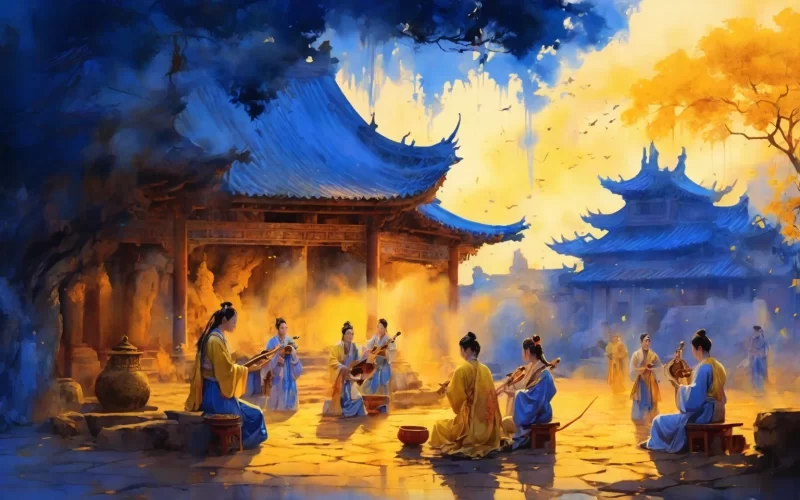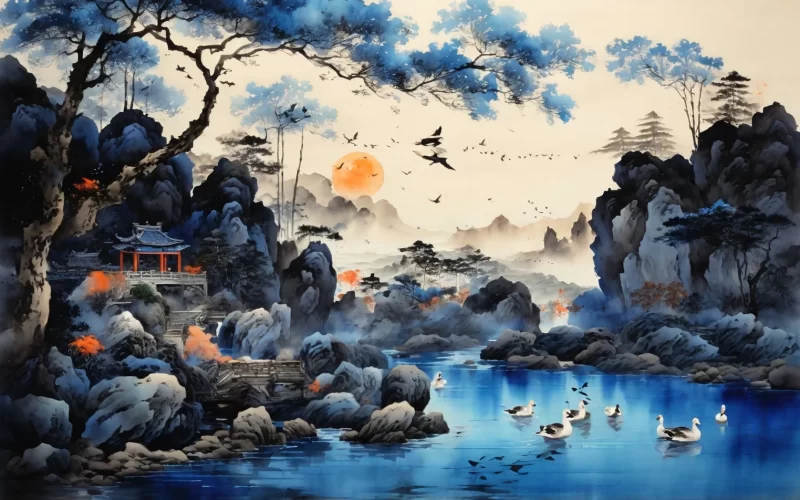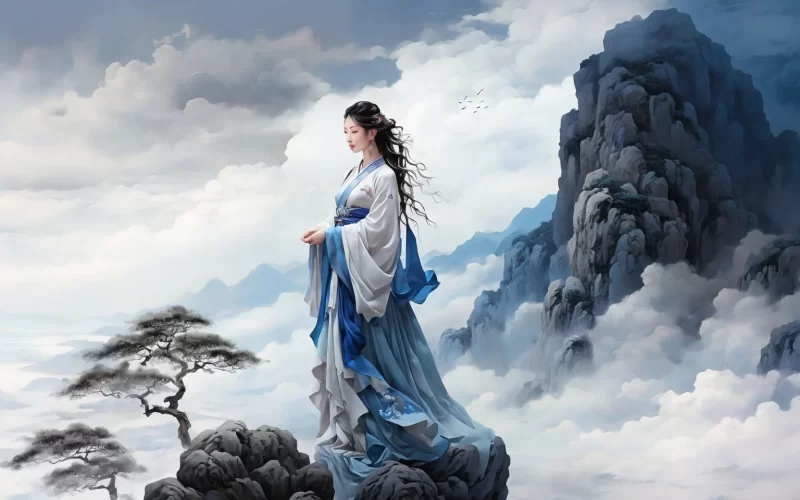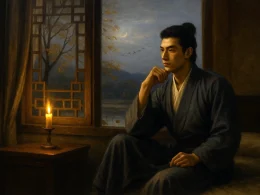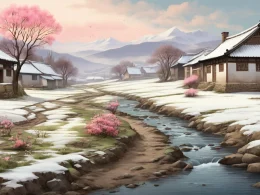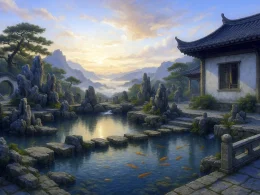No leaves sprout from mulberry trees on drought-scorched earth;
Flutes and pipes are played to evoke the Rain God's mirth.
But the rich see dances and hear songstresses sing;
They only fear rain clouds would damage their lute string.
Original Poem
「观祈雨」
李约
桑条无叶土生烟,箫管迎龙水庙前。
朱门几处看歌舞,犹恐春阴咽管弦。
Interpretation
Written during a severe spring drought in the mid-to-late Tang Dynasty, this poem captures Li Yue's piercing observation of social injustice. While commoners desperately prayed for rain through rituals, the aristocracy indulged in revelry, utterly indifferent to their suffering. Through stark juxtaposition of two simultaneous yet disconnected realities, the poet exposes the unbridgeable chasm between the ruling class and the people under feudal oppression.
First Couplet: "桑条无叶土生烟,箫管迎龙水庙前。"
Sāng tiáo wú yè tǔ shēng yān, xiāo guǎn yíng lóng shuǐ miào qián.
Bare mulberry branches, earth smoking dry; At Dragon Temple, flutes wail toward the sky.
The opening lines paint a landscape of despair: "bare branches" (无叶) and "smoking earth" (土生烟) visualize extreme drought's dual assault on agriculture and human survival. The "flutes at Dragon Temple" reveal people's last resort—using music to beg divine intervention, where supposed festivity masks collective desperation.
Second Couplet: "朱门几处看歌舞,犹恐春阴咽管弦。"
Zhū mén jǐ chù kàn gēwǔ, yóu kǒng chūn yīn yàn guǎnxián.
Behind vermilion gates, song and dance unfold, Yet they fear spring damp might dull their music's gold.
The scene shifts to aristocrats in their "vermilion gates" (朱门)—a color symbolizing power and blood. Their concern that humidity might "dull their music" while peasants pray for life-giving rain epitomizes obscene privilege. The couplet's irony cuts deep: the elite's trivial anxiety about acoustic perfection contrasts with mortal terror beyond their walls.
Holistic Appreciation
"Observing Rain Prayers" epitomizes realist satirical poetry. In just four lines, its violent contrast between two scenarios exposes the divergent realities and concerns separating elites from commoners: peasants desperately begging for life-giving rain while nobles fret about musical interruptions. Rather than direct condemnation, the poet's clinical portrayal of this absurd indifference delivers more devastating critique through understatement. This miniature masterpiece combines panoramic social insight with penetrating psychological observation, provoking deep reflection.
Artistic Merits
The poem employs stark contrast as its primary technique, juxtaposing rain-praying rituals with aristocratic revelry. The parallel between "invoking the rain-dragon" and "orchestral music," between "parched earth steaming" and "enjoying song-dance," creates extreme situational antithesis with potent satirical effect. Li Yue achieves profound social commentary through remarkable concision, where the line "still fearing spring damp might mute their strings" particularly crystallizes the ruling class's callous decadence with masterful irony.
Insights
The poem reveals systemic injustice's crushing weight on the vulnerable while warning against privileged indifference to collective suffering. Though manifestations differ today, similar resource inequality and social apathy persist. Reading this work should reaffirm our commitment to equity and inspire building a more compassionate, accountable society—where no one's music drowns out another's cries for survival.
Poem translator
Xu Yuanchong (许渊冲)
About the poet
Li Yue (李约), with a clean and reticent character, was not close to powder in his life, and explored the ancient world. His poems are simple in language and somber in feeling.






